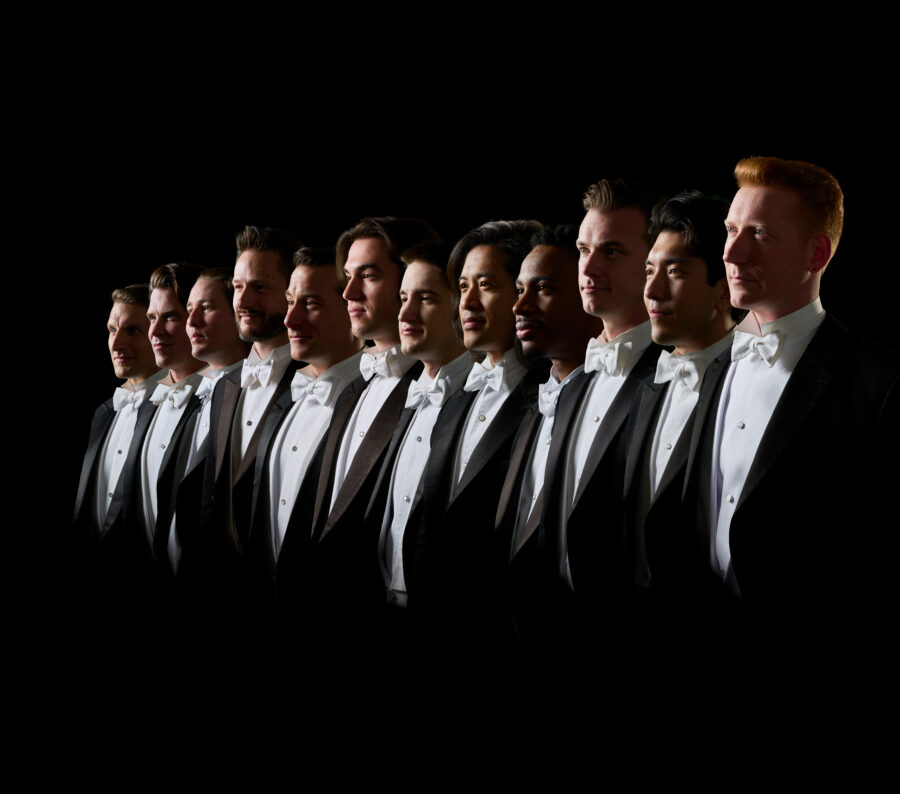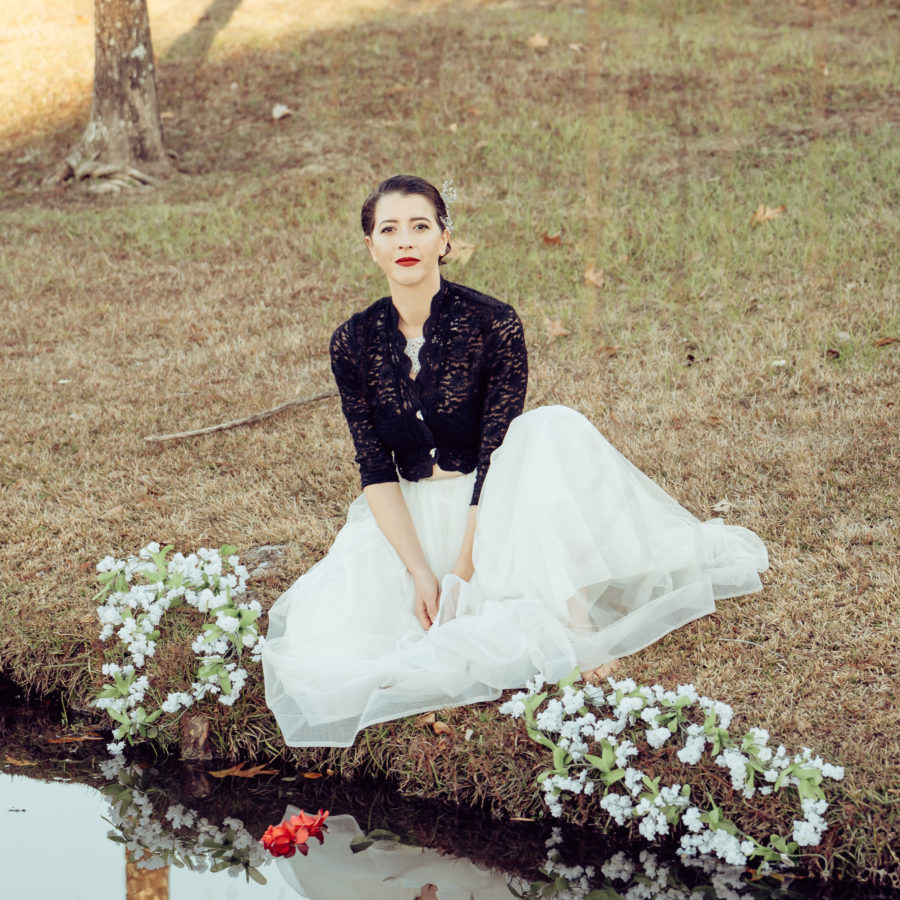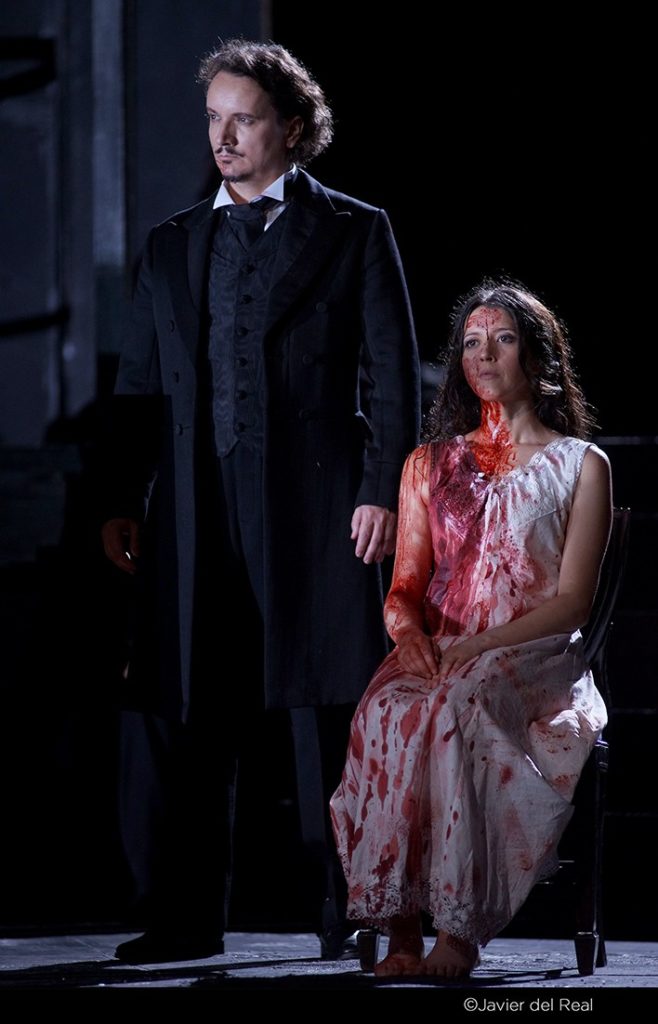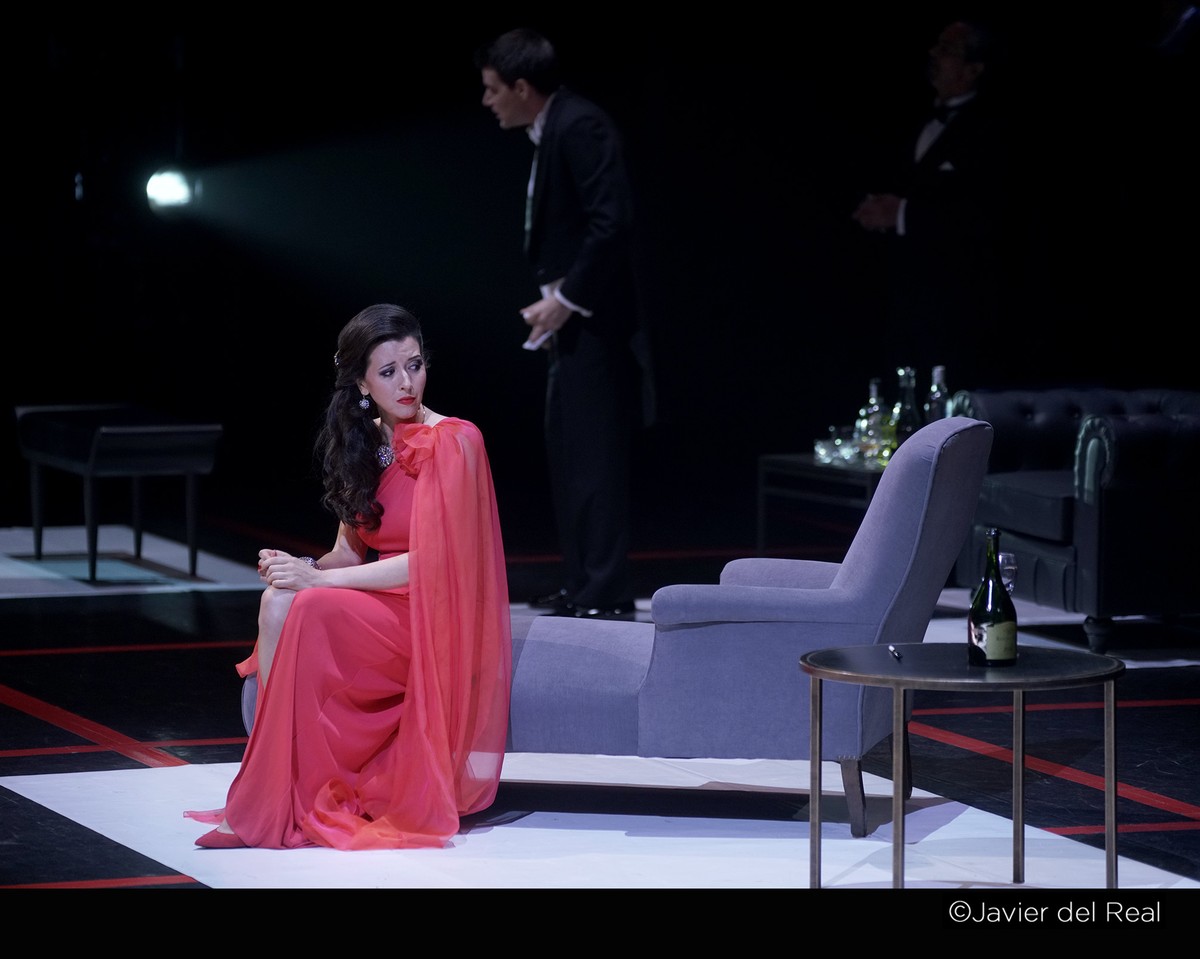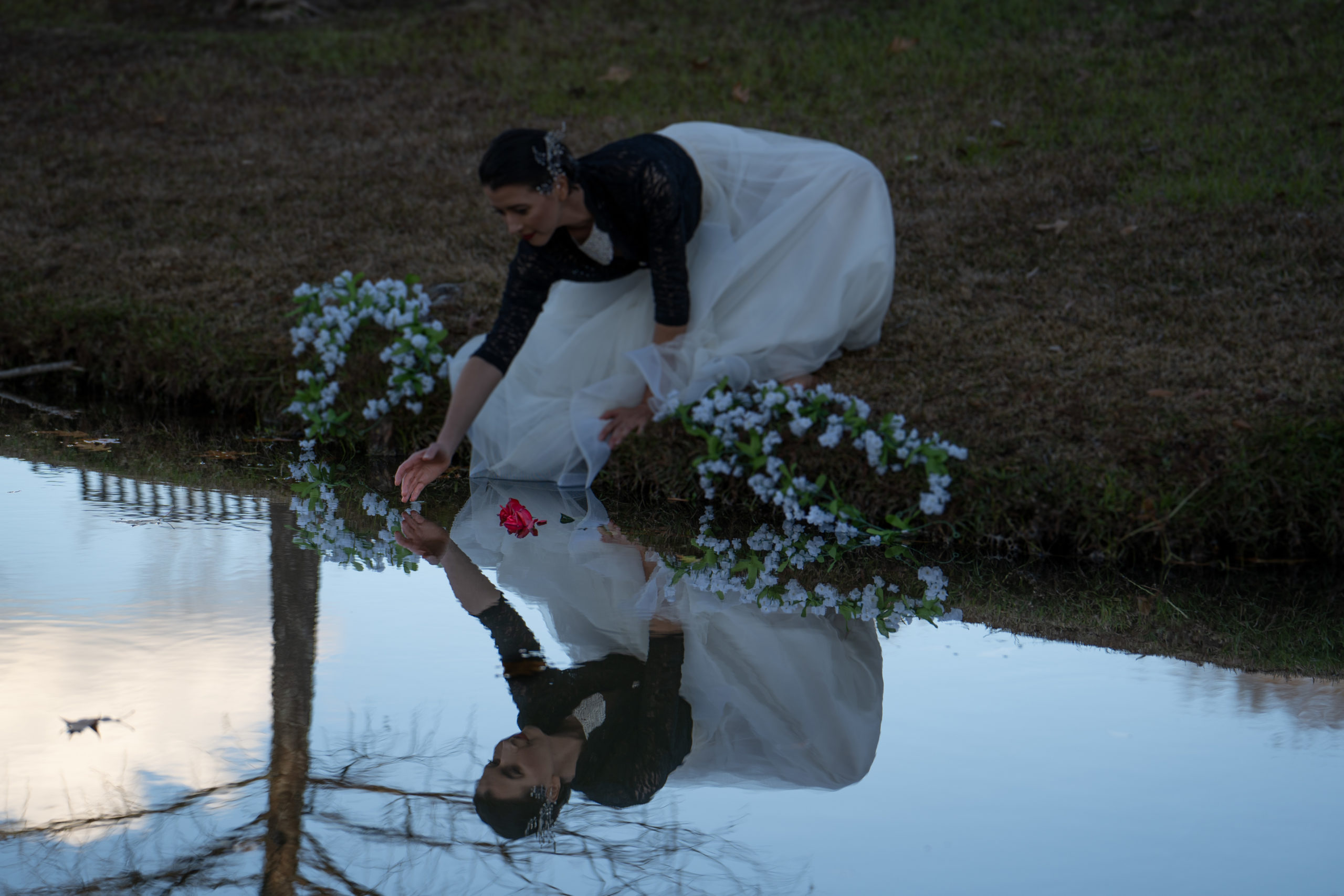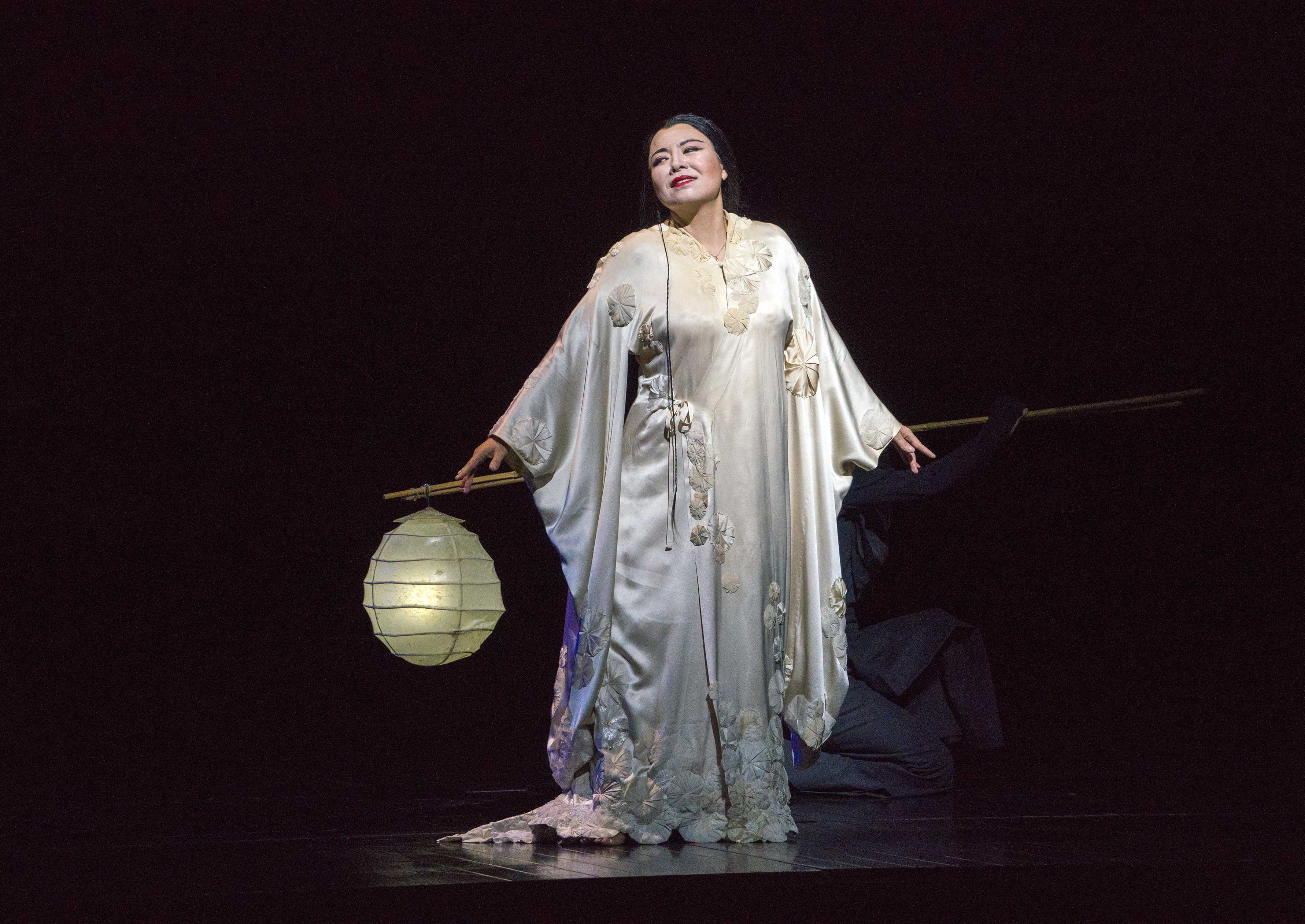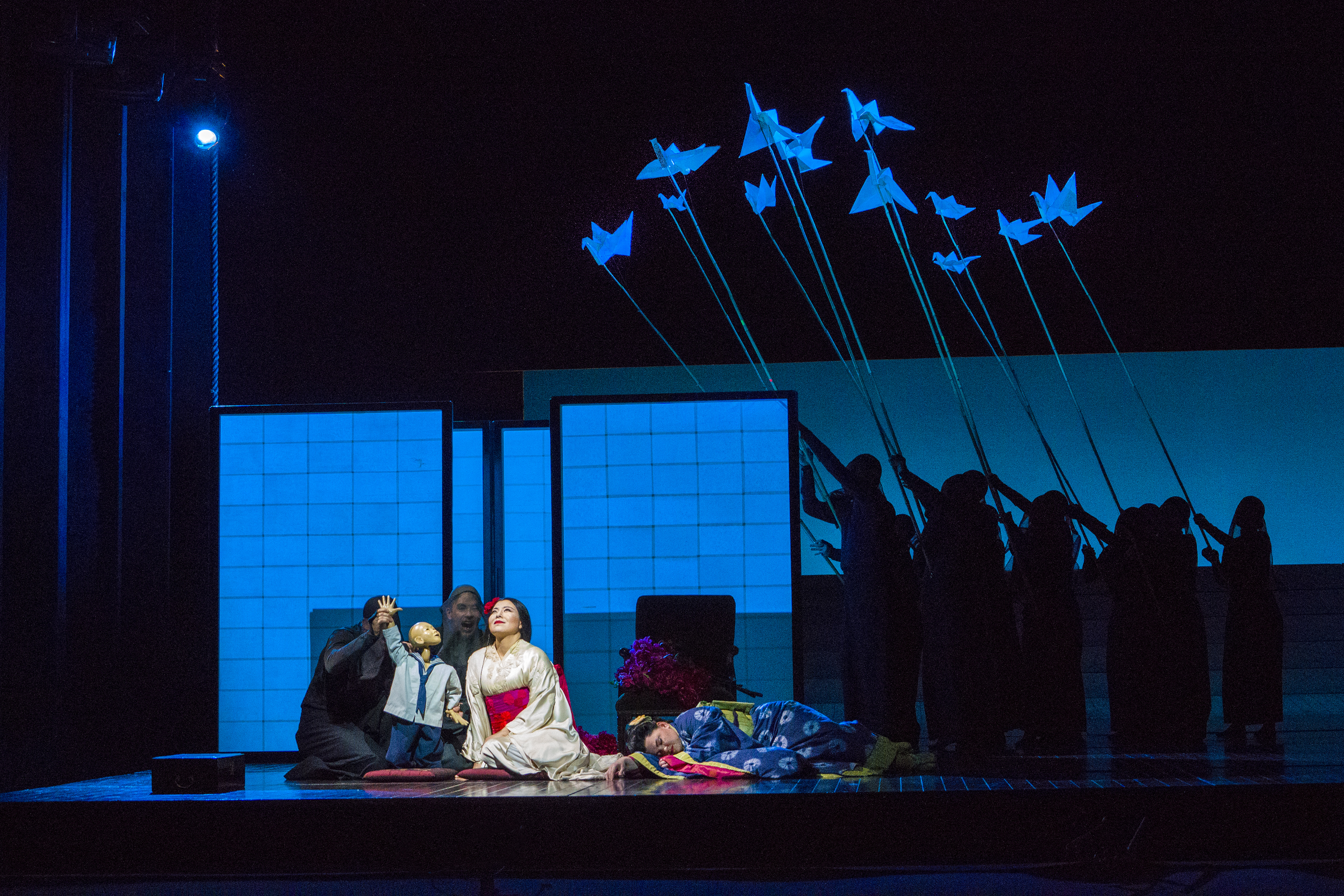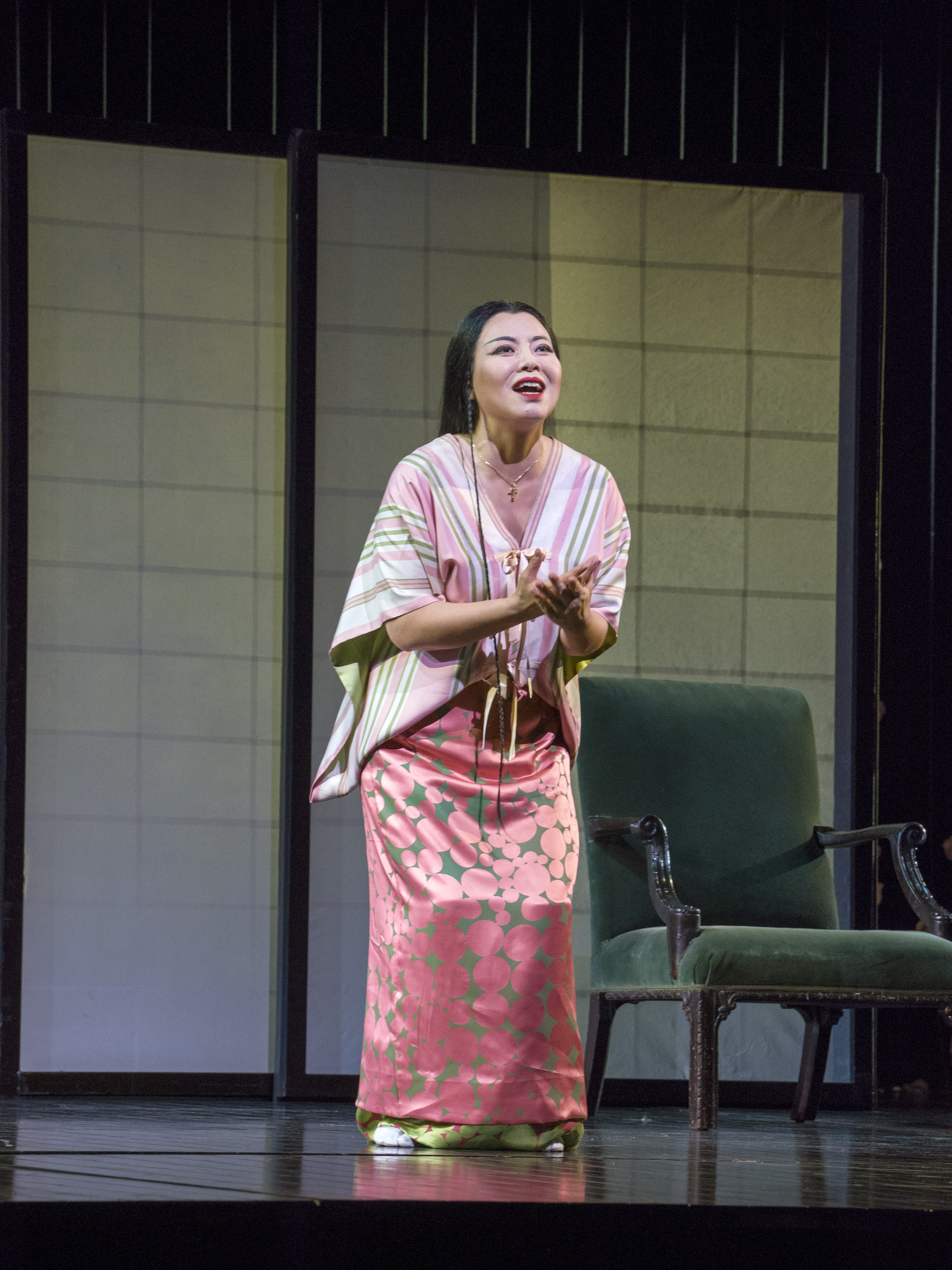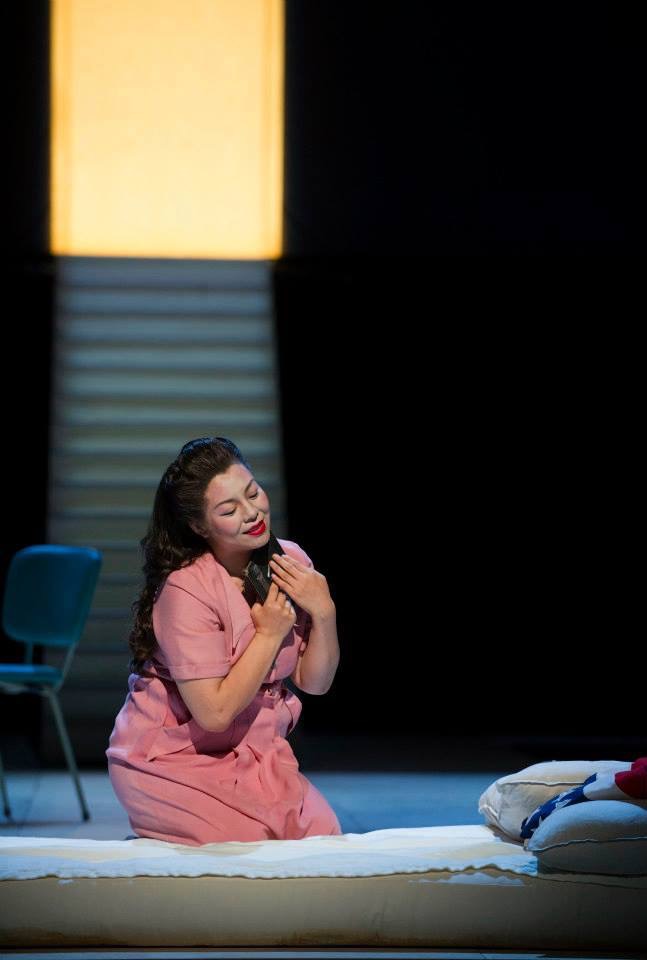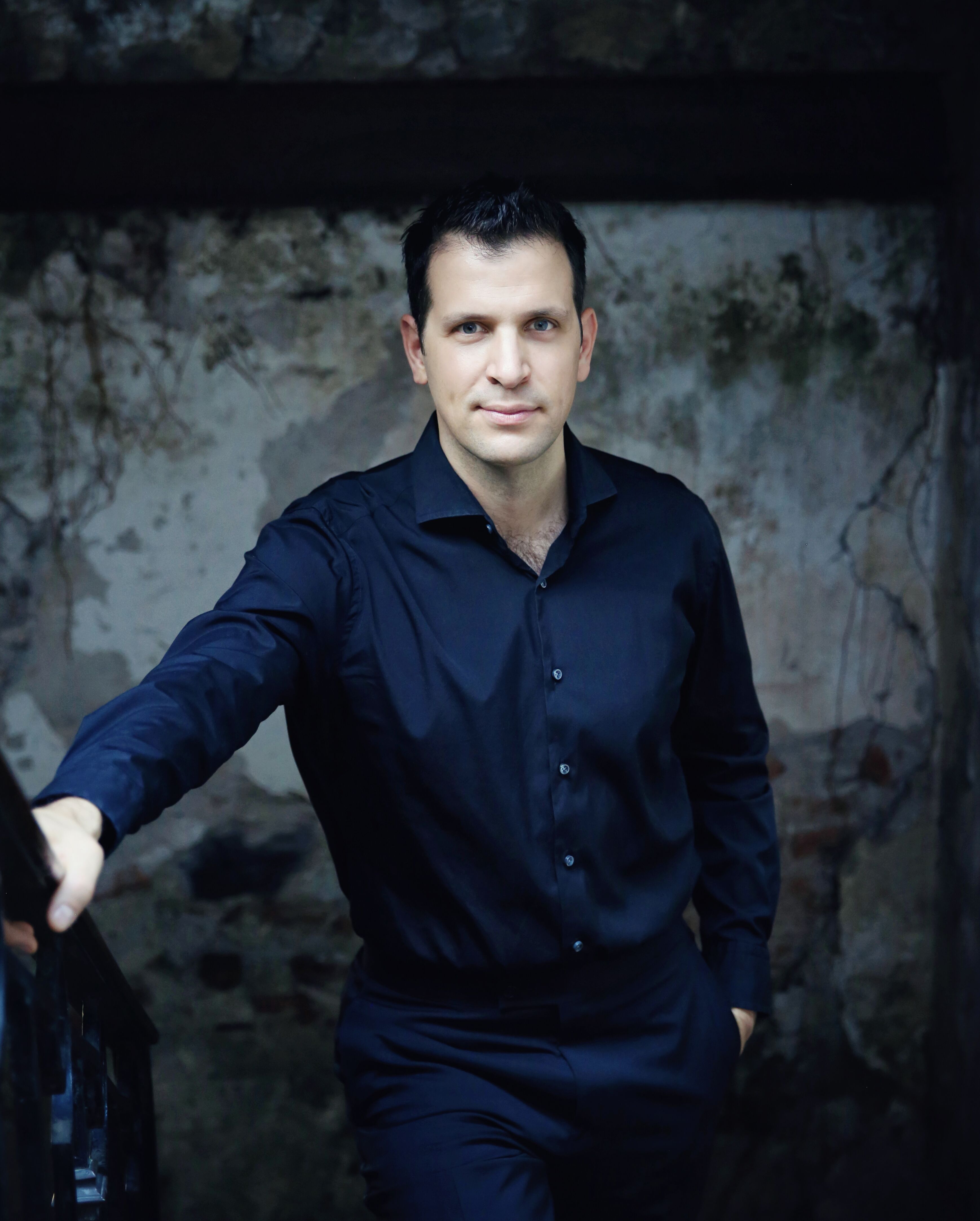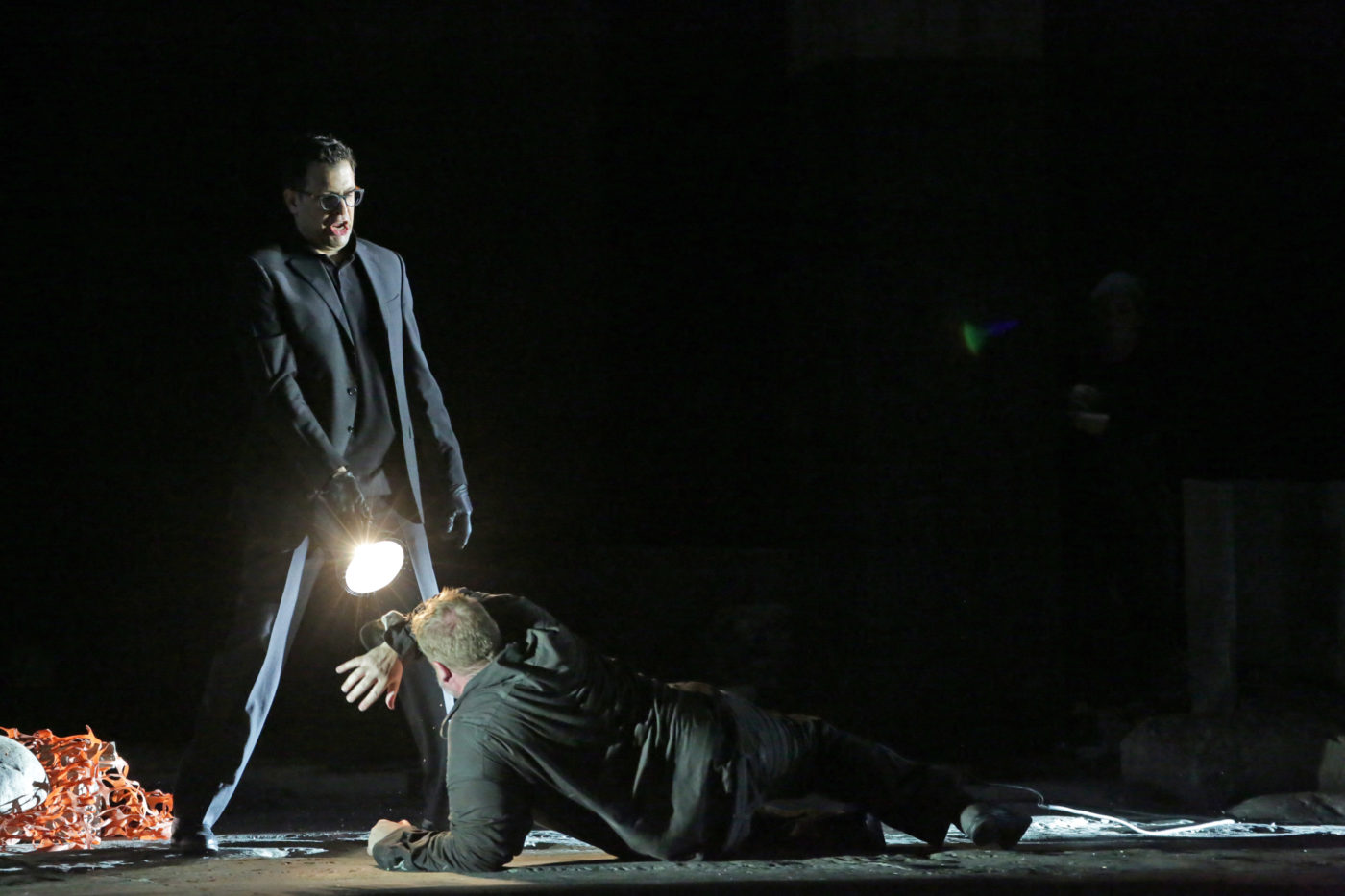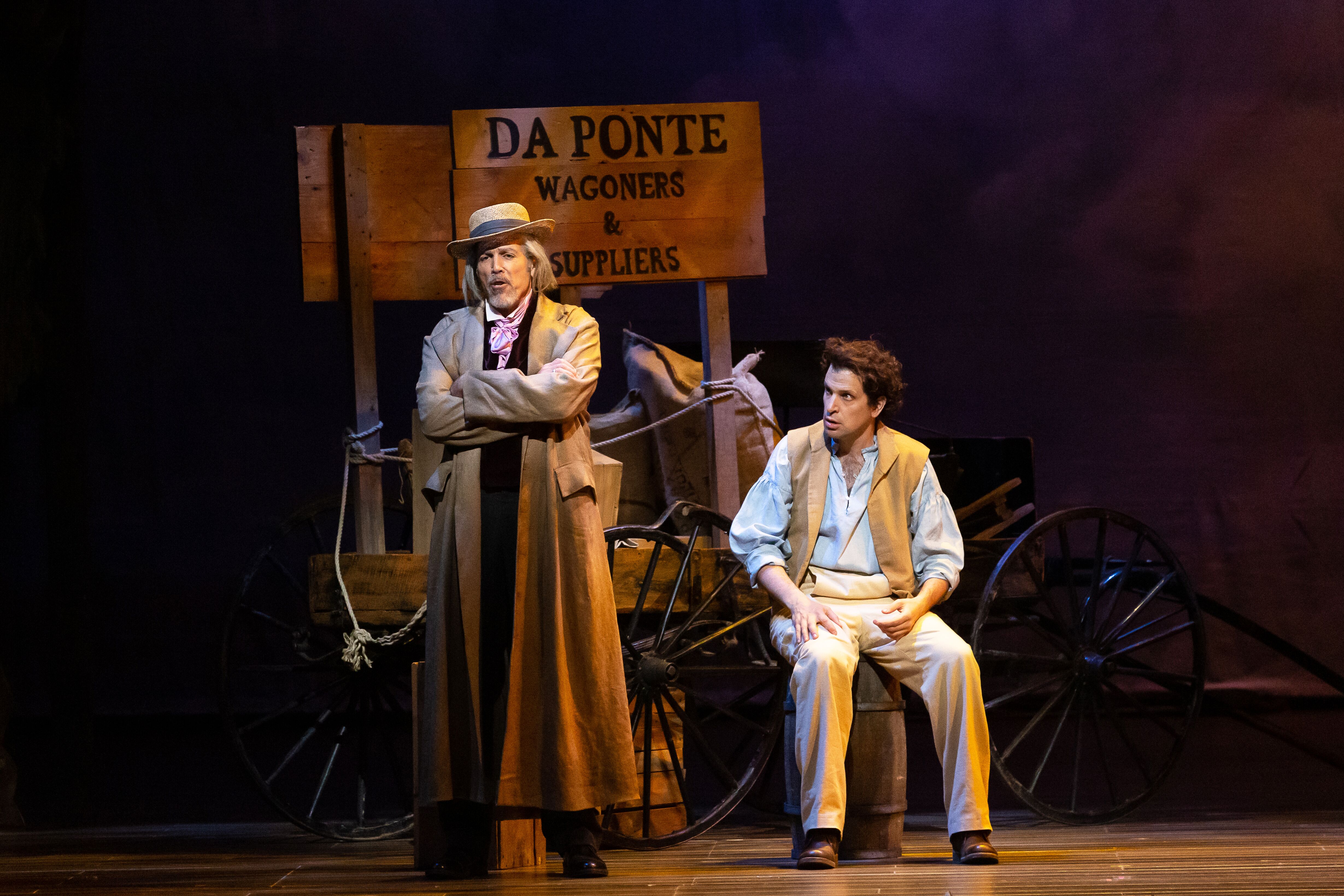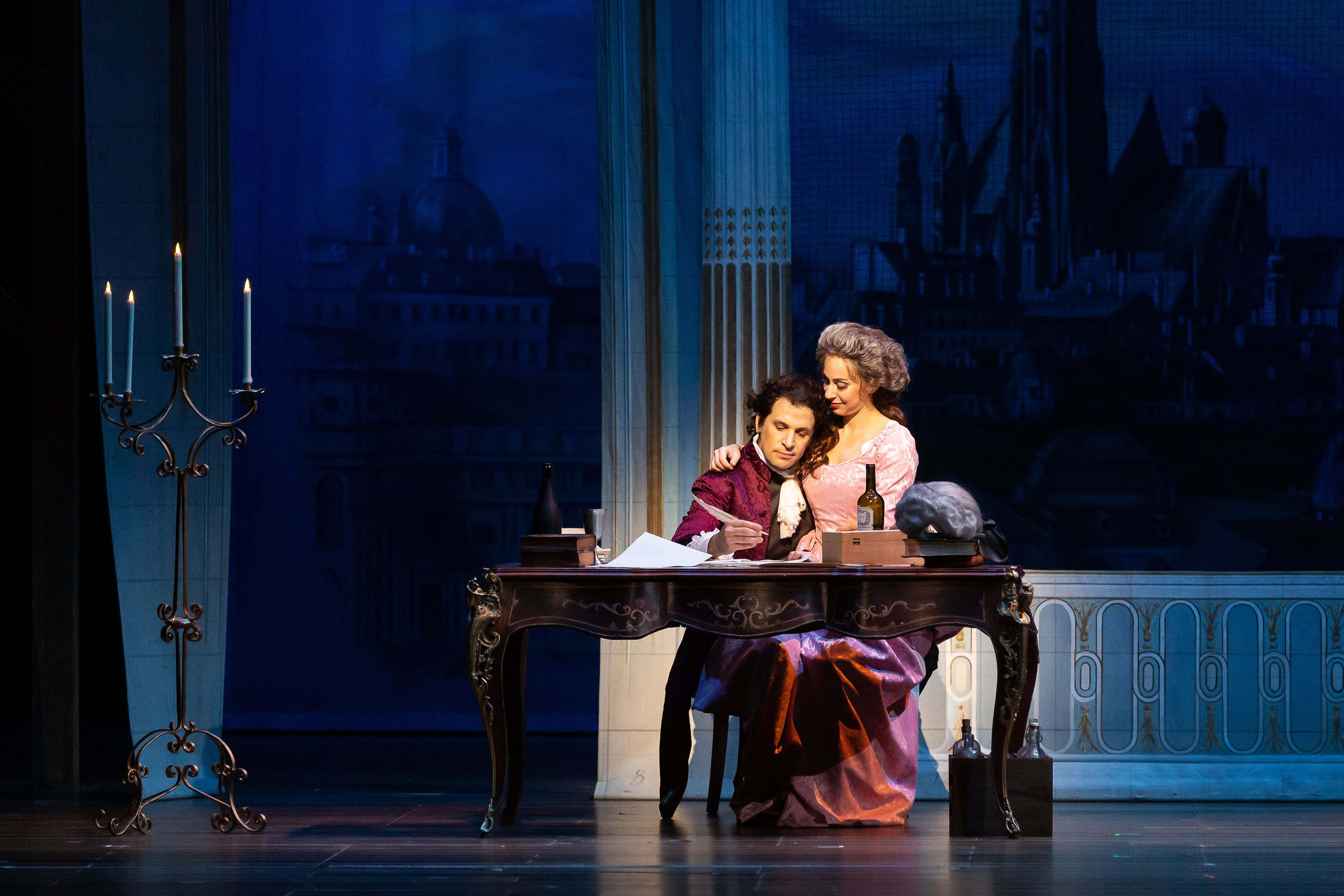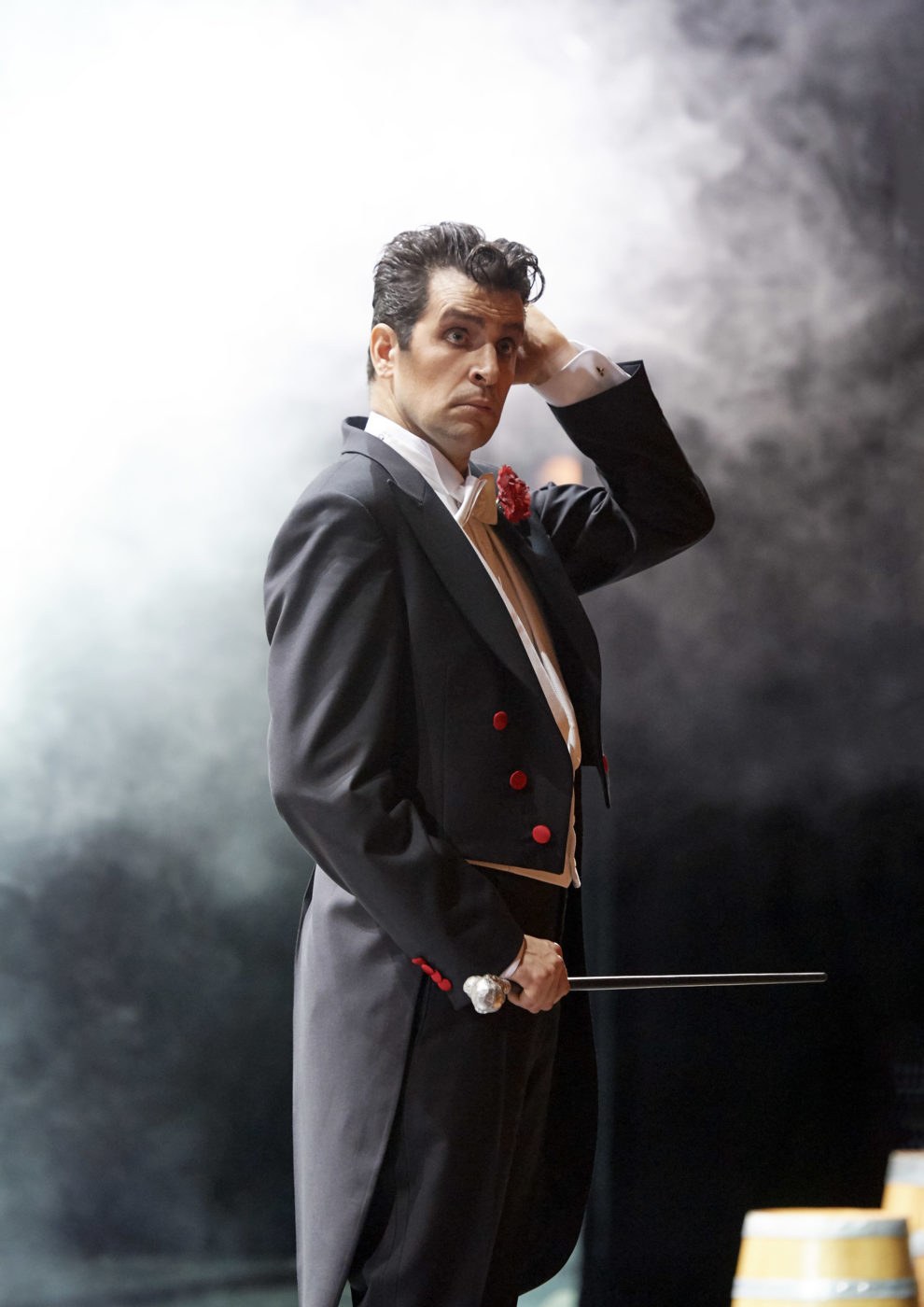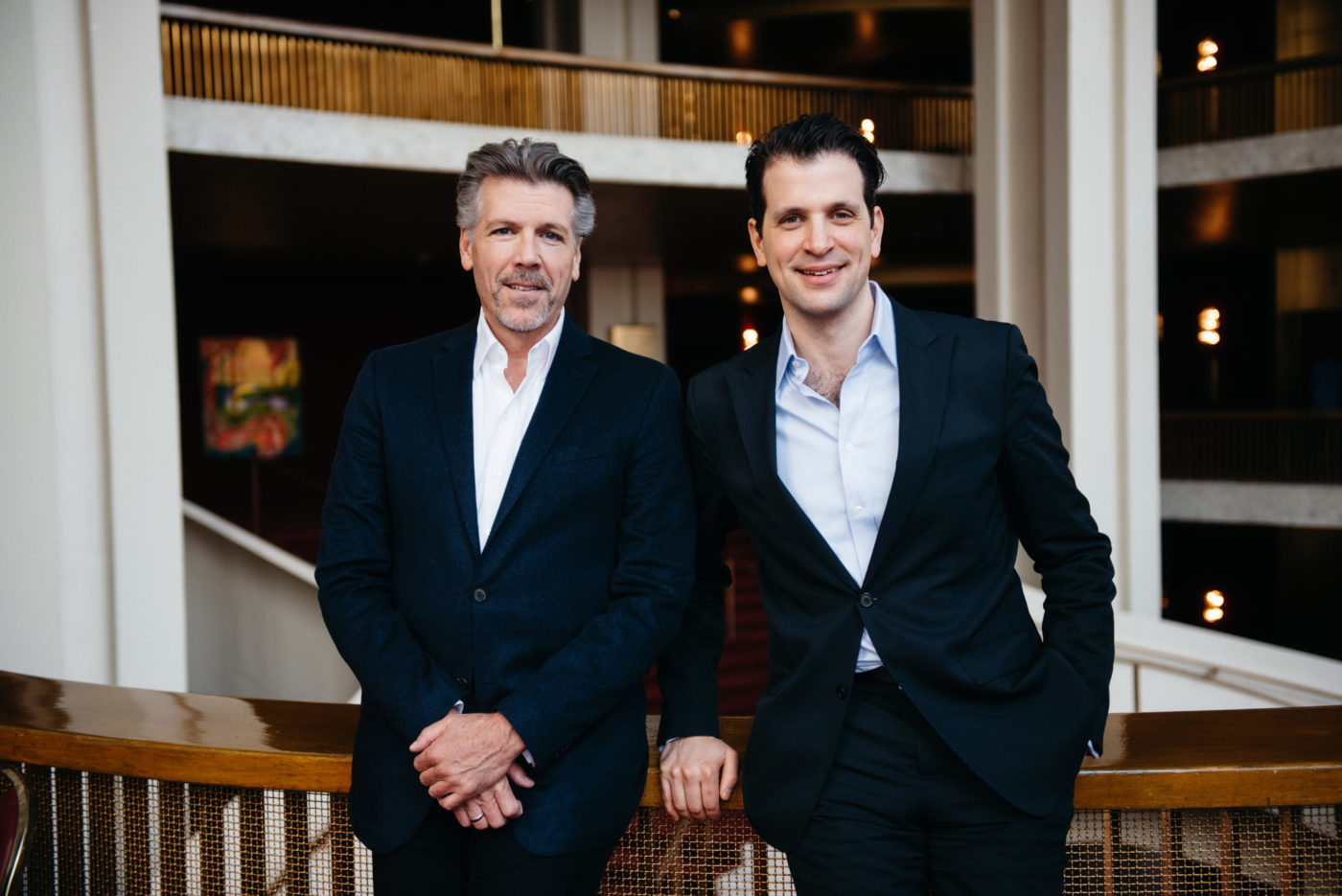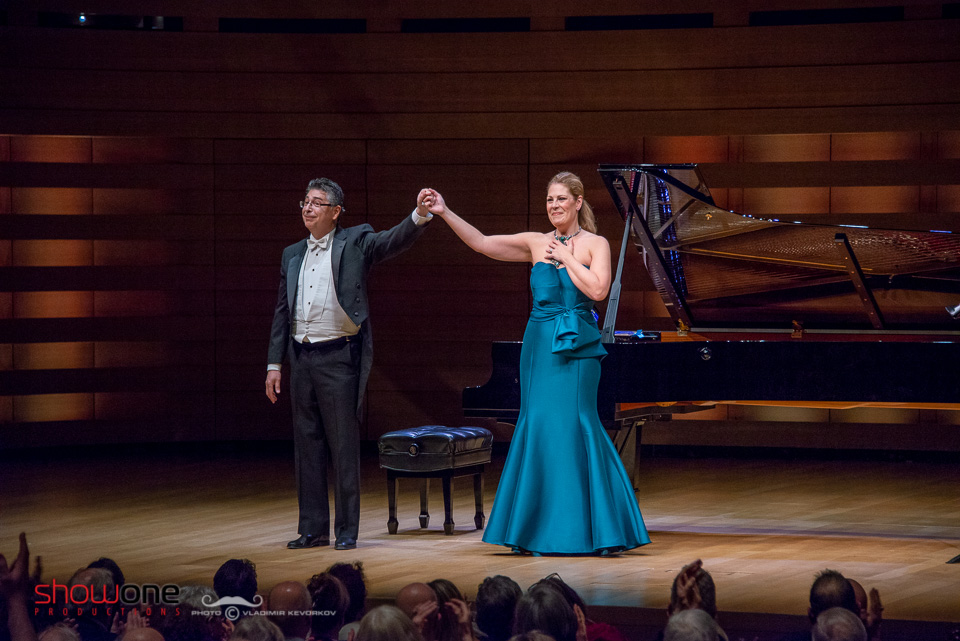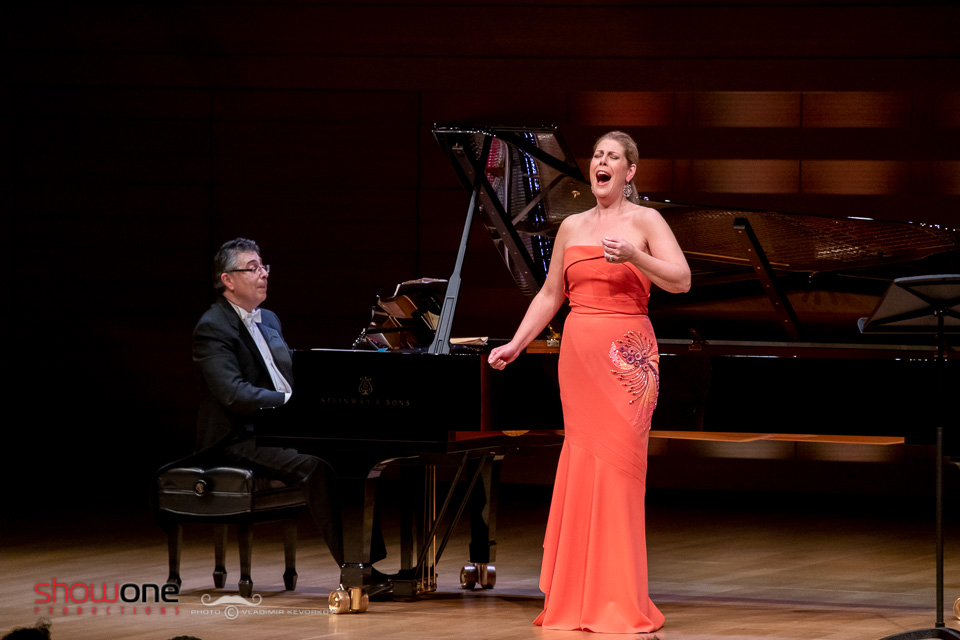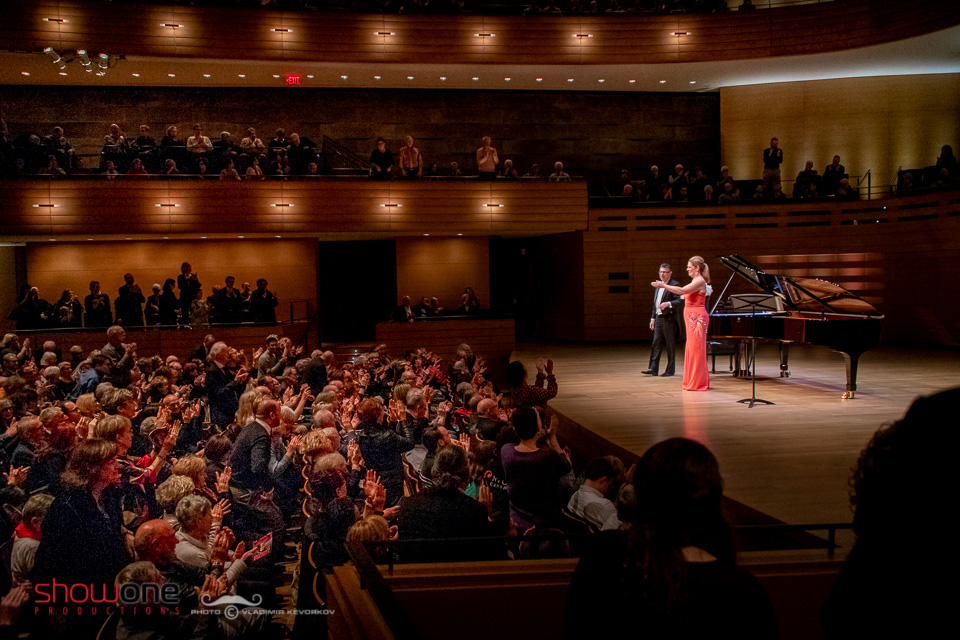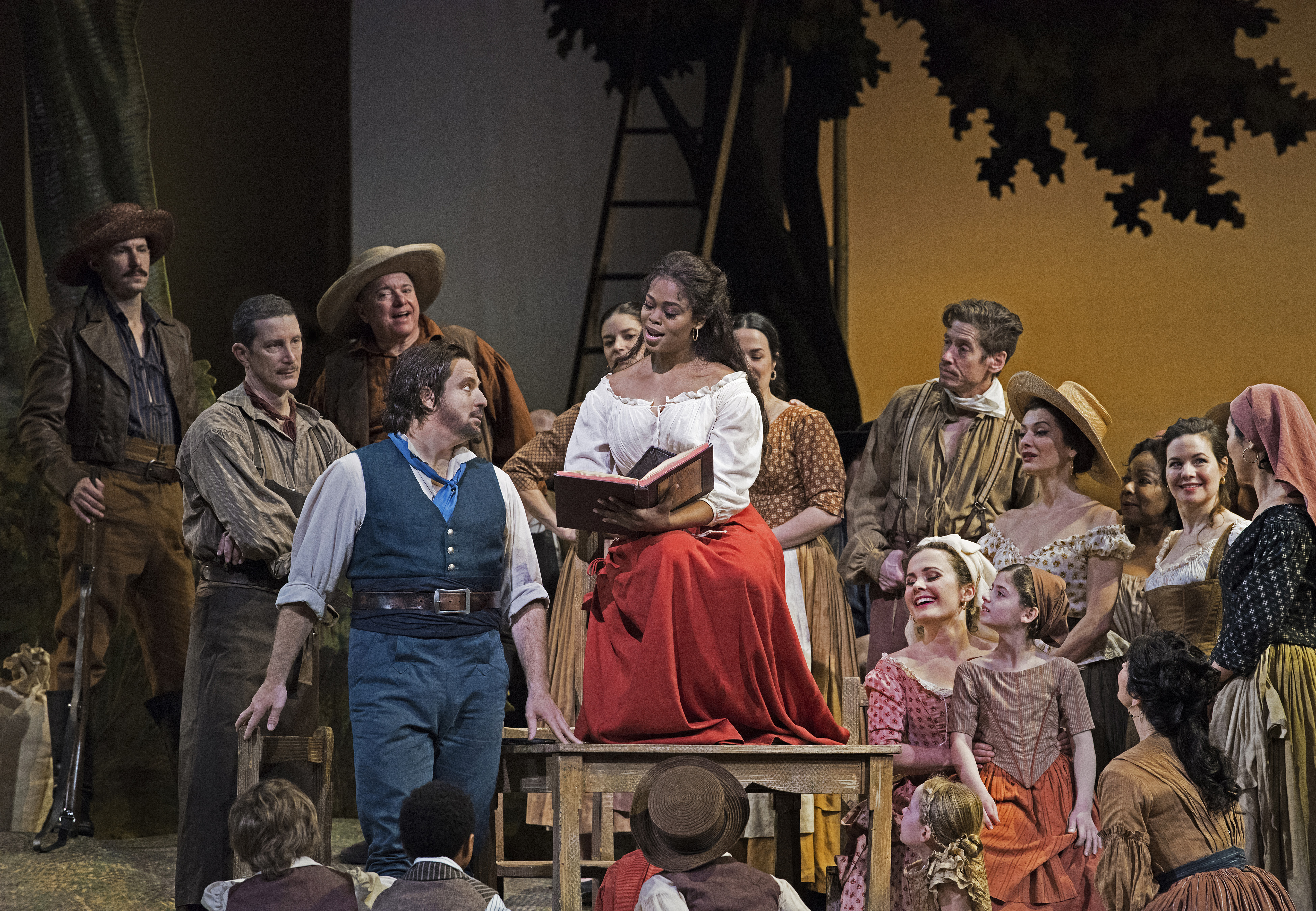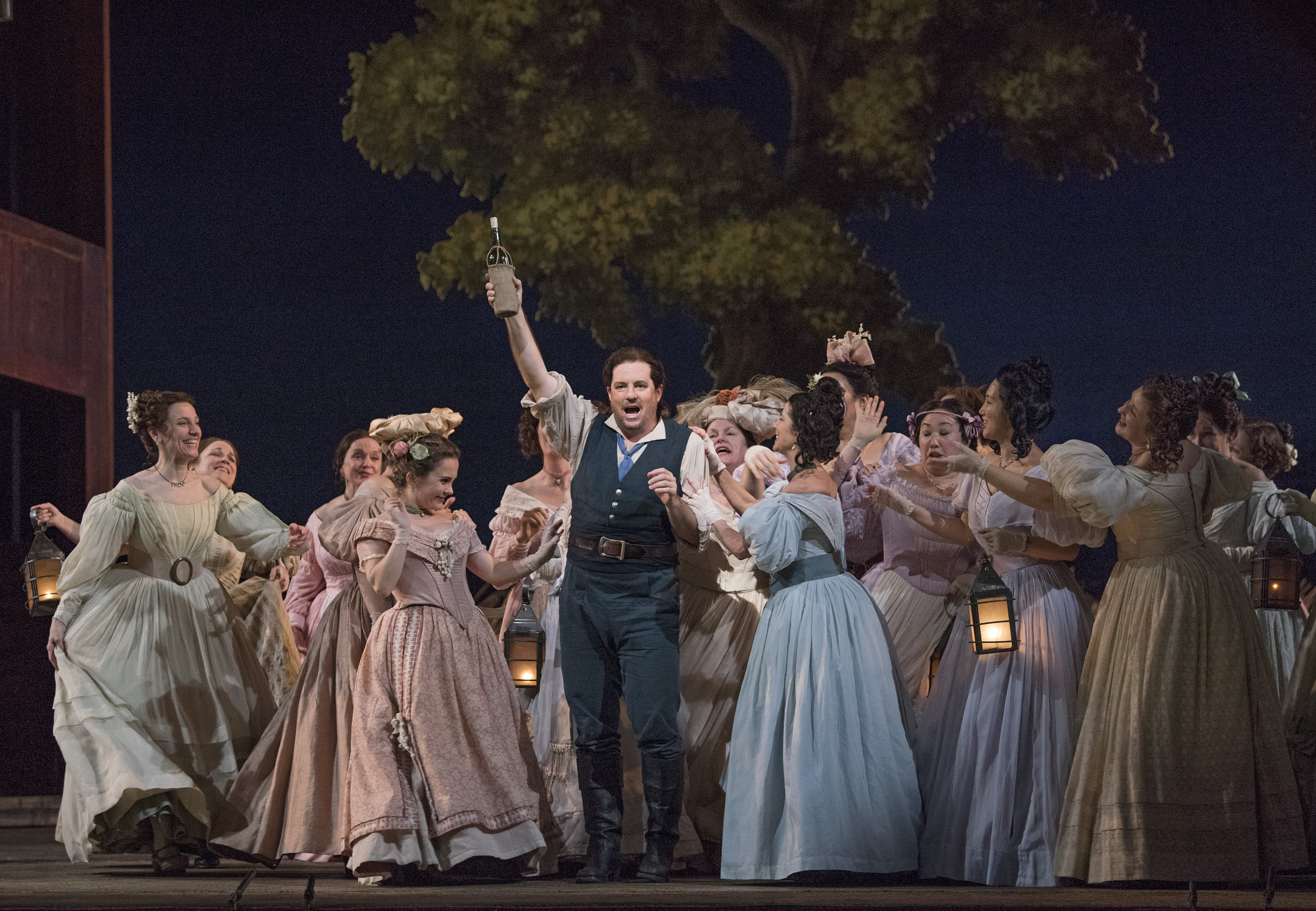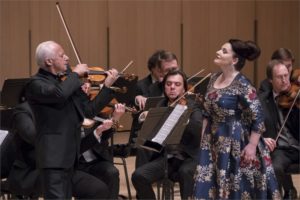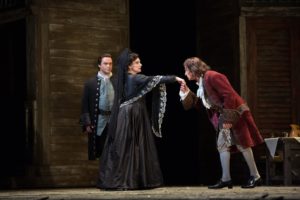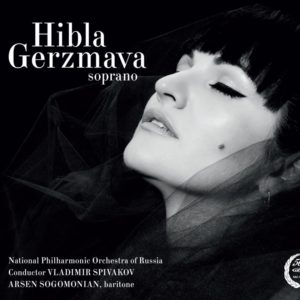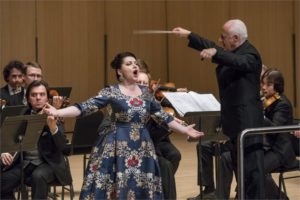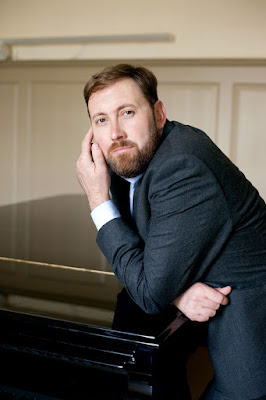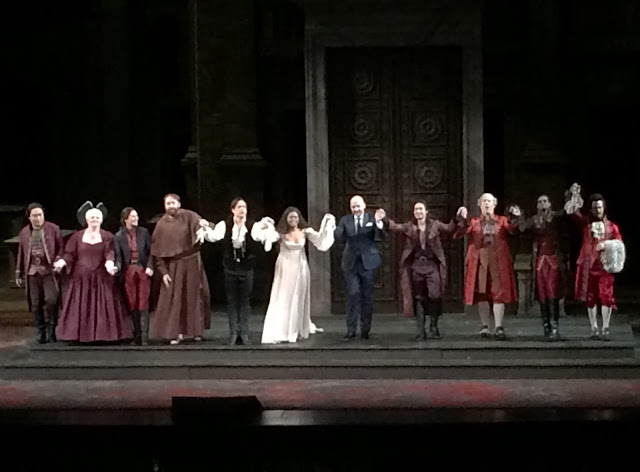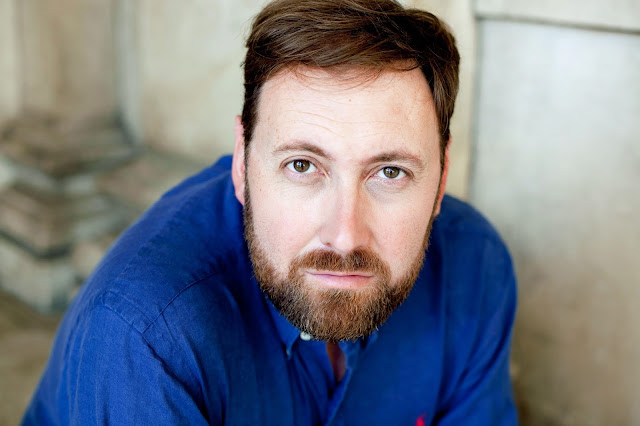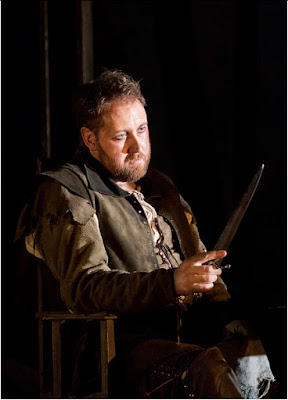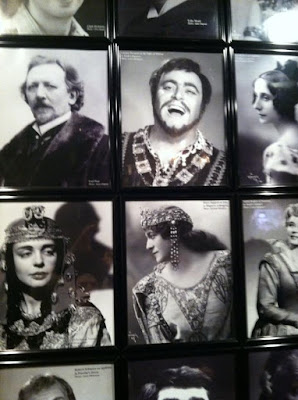When most people hear the words “classical religious music” they might immediately think of Requiems by Verdi and Mozart or sprawling Masses by Bach and Beethoven. The work of Guillaume de Machaut may not be top of mind, yet the 14th century French composer is a central figure within Western musical expression and development. He was also a survivor: Machaut endured the disastrous Black Death that killed a third of the European population.
Messe de Nostre Dame (Mass of Our Lady) was composed in 1365 for the Cathedral at Reims where Machaut was serving as a canon; the work marks the earliest complete setting of the Catholic Church’s Ordinary of the Mass (the part of a mass which is constant) traceable to a single composer. As music writer Davis Smith noted at their website A Taste of the Divine Specific in 2022, Machaut’s Messe (written in Old French) is notable because “it is the first large work of Western music to showcase an individual voice […] perhaps the first truly major musical statement.” More precisely:
Machaut’s music serves the purpose of worship and brings the listener closer to the source—and sound—of his faith through the mastery of poetic idioms, translating the established text into abstract sonic patterns, exploring the potentials of the human voice in combination with others, painting the diction and meaning of the Mass text with meticulous strokes, playing with sonorities and their relationships, testing the boundaries of what poetry and music alike can do. In so doing, he paved the way for all composers within the following 400-year period.
(Davis Smith, “The Poetry of Sound and the All-Wellness of Faith“, June 23, 2022)
Various recordings of the Messe have been made through the years, all of them utilizing a variety of vocal styles specific (or in some cases not entirely tied) to early music performance; the Taverner Consort and Taverner Choir (1984), the Oxford Camerata (1996), and Antwerp-based Graindelavoix (2016) are just a few of the groups to have put their individual stamp on the work. Machaut also composed a wide variety of songs, many of them written in first-person and exploring terrestrial concerns like courtship, longing, and heartbreak; his ironically-titled Le voir dit (“A True Story”) is a meta-fictional narrative which mocks contemporaneous tales of courtly love even as it seduces the listener with its flowing poetry and intriguingly modern-sounding vocal writing.
That paradigm of new and old sounds is something Chanticleer specialize in. The ensemble will be performing the work of Machaut in a series of concerts in California between June 2nd and 9th, with each one featuring the Messe de Nostre Dame interspersed with selection of his secular works and those by medieval contemporaries. This musical curiosity comes naturally to Chanticleer. Known as “an orchestra of voices”, the group was formed in 1978 by tenor Louis Botto, who cleverly named it after the singing rooster in one of Chaucer’s Canterbury Tales. Initially exploring the music of the Renaissance, their musical palette has expanded to include a host of sounds from a variety of eras, thanks in no small part to Music Director Emeritus Joseph Jennings, who joined Chanticleer as a countertenor in 1983. Assuming the position of Music Director a year later, he remained with the ensemble in that position until 2008 when he stepped down and assumed the title of Artistic Advisor; during his tenure the ensemble released a tremendously diverse and often Grammy Award-winning array of recordings showcasing the ensemble’s vocal flexibility, from early music (Josquin, Palestrina, Byrd, Desprez) to spirituals and traditional gospel music to jazz.
Current Music Director and countertenor Tim Keeler has continued this tradition of expanding the ensemble’s oeuvre while happily embracing a 21st century approach. Recent ecologically-themed programs have included tje song cycle The Rivers are our Brothers (which includes “I Am A Tree“, a live performance of which was recently captured during a tour stop at Toronto’s Koerner Hall) by neoclassical-electronic composer Majel Connery, as well as “I miss you like I miss the trees” by electro-acoustic composer Ayanna Woods, who is also Chanticleer’s composer-in-residence. Their social media platforms feature the group performing contemporary and nostalgic pop hits, gospel, and a sample of chant from the video game “Halo: Combat Evolved”. A busy summer is in store for the group, with German dates to include a premiere appearance in Dresden (at the city’s storied Frauenkirche) and another in Ludwigsburg, performing for the first time with British vocal ensemble Voces8 – but before all that, there’s Machaut and his unique Messe. Is it really a work only for the religious and/or early-music-loving ears?
Keeler (TK) and countertenor and Assistant Music Director Gerrord Pagenkopf (GP) think otherwise. “It’s early music,” Keeler recently told San Francisco Classical Voice writer Jeff Kaliss, “but you almost have to approach it with a new-music sensibility.” He and Pagenkopf recently shared their thoughts on the Messe and a variety of Chanticleer initiatives, many of which offer a unique integration of entertainment and education, with any enlightenment for audiences a natural and happy side-effect of smart, approachable musical presentation.
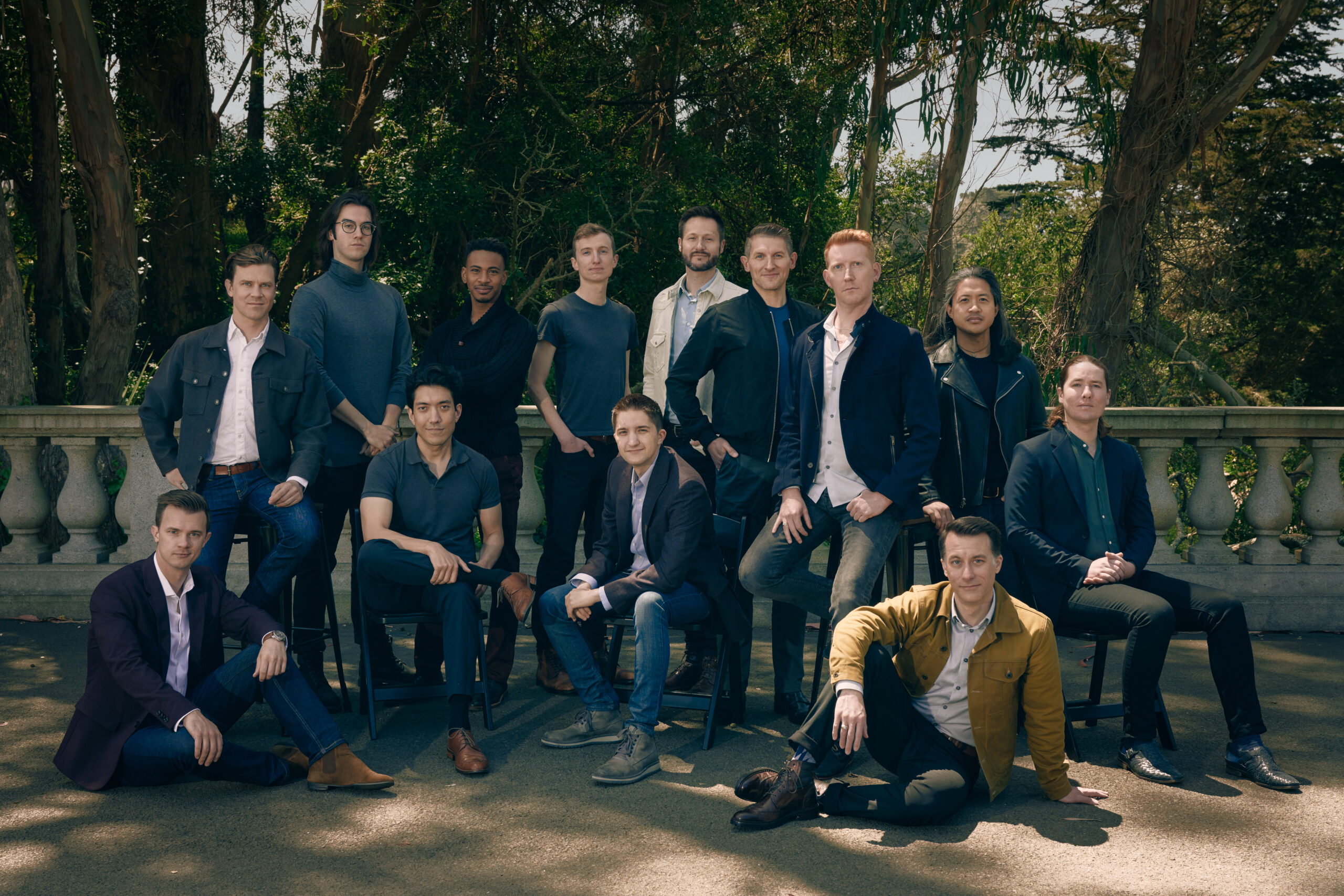
Photo: Stephen K. Mack
What’s it been like to explore the music of Guillaume Machaut?
TK It’s been a bit of a switch. We do so many different styles of music in Chanticleer. We started as an early music group back in 1978, singing Renaissance music mostly, and we still do a lot of Renaissance music in our programs and on tour; last year was our William Byrd anniversary program, the year before that was another Franco-Flemish program. But rarely do we go so far back as medieval music, which is a genre in and of itself, very unique and very specific. The way you sing it, and the harmonies involved, it almost feels modern in some ways.
How so?
TK Well, in a sense, it’s very unpredictable. As I said we do a lot of Renaissance music, and when you do a lot of Renaissance music, you start to understand the patterns. You can kind of assume what’s going to come next and there’s definitely a tonal soundscape that you get used to. But with medieval music, those conventions are not set up yet. The composers then were experimenting a lot – many musical conventions were being set down for the first time, things as simple as bar lines and time signatures. You think, “Well, how was there ever music before that?”– but there was. These medieval composers like Machaut were really establishing what music looked like, and they were experimenting a lot. Musical lines go where you might not expect them to go; harmonies are up against each other; sometimes you’re completely unprepared for the sounds and you think, “Wait, is that real? Did they really mean to write that?” And you go back to the source material and yes, those in fact are the notes that were written. There was a lot of experimentation, and in a sense, that’s how you have to think about modern music also: you have to forget everything you know about singing and take it for what it is.
Beautiful vs. “beautiful”
How have you adjusted vocally?
TK Gerrord’s been doing more singing than I have, so he’ll have more to say. But I do think there’s really no actual way to know how Machaut would have wanted his music to be sung. We have some small bits of writing from contemporary sources that are mostly just complaining about how things shouldn’t be sung, not telling you exactly how it should be sung. So we don’t really know! There are a few recordings of the mass out there, and they all take wildly different approaches – because nobody really knows. There are Renaissance-inflected approaches that are sort of straight tones, beautiful beautiful sounds, then there’s some that are much more nasal and much more aggressive – for lack of a better term – that take their inspiration from improvisational modern Corsican polyphony and things like that, where it’s a much more visceral sound. And there’s a lot to be said in this regard about modern music as well, because a lot of times we have composers asking us to make a certain kind of timbres with our voices or to go for a certain kinds of sounds. So we get to experiment in the same way with the super early music – because we don’t really know the “should” – so we get to have some fun with it and try things out. What do you think, Gerrord?
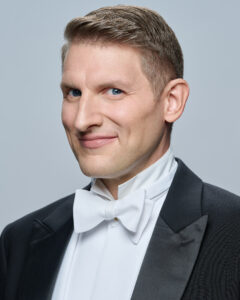
Chanticleer’s Gerrord Pagenkopf. Photo: Stephen K. Mack
GP Yeah, that’s pretty much it! In the bel canto era everything was all about beautiful singing and about making the tones as beautiful as possible, and that singing technique was superimposed, for a long time in the 20th century anyway, onto all genres of all time periods of vocal music. I feel like in the 1980s and ’90s, we started to try and perform music in what we think is a more authentic way, pre this bel canto kind of style –so not every single tone has to be quote-unquote beautiful; it can be a little bit nasty, snarly, a bright kind of nasally. And we think that that’s okay. When you hear some of these very dissonant chords, you understand that if you try and do a nice beautiful operatic vibrato, it really obscures the tonality, so maybe a more laser-pointed, bright tone is actually necessary to make those chords ring, we would say, or, have their effect.
“The sounds feel new”
How does this translate to your live presentation? Is there any intentionality in your blend of education, enlightenment, and entertainment with these concerts?

Chanticleer’s Tim Keeler. Photo: Stephen K. Mack
TK All of the above! Really, that’s a great question. My first thought is that with Machaut, the sounds feel new – actually the time period is called Ars Nova, or the new art, which is fascinating. It was new back then, and it feels new today. It is pretty remarkable how these sound worlds are still a little bit a part of everybody’s subconscious, like everybody knows them if you grew up in the Western world. And so you underline that and all of a sudden people are transported in a way that maybe they didn’t quite understand they could be. One of our videos online is us singing the Halo theme song; it’s a video game which is essentially a Gregorian chant that is just put into this video game to give it a sense of time and space; that sound world is not dissimilar to the Machaut world. The piece is a mass, right? And within the mass there would have been chant as well as polyphony. In the upcoming concerts we’re going to start with a chant in the 10th century style to get everyone into that mystical religious world, which is a very unique space – but one everybody has a little bit of familiarity with already. It’s a tricky business to program an entire religious work of such length in a concert and make it feel like something that people want to sit through.
GP But there’s a wide variety of audiences for Chanticleer: we have people who love Kansas’ music and people who love early music. So our goal is to find a way to do a medieval music concert in a way that feels accessible to all of those people. I’m sure we’re not going to be entirely successful with that, but we’ll do our best. The way the program is structured is that we split the mass into the beginning and the end of the program so it’s not all in your face, all at once.
TK Obviously we’re not going to perform it as part of a religious service, which it would have been done. Our concerts will be more of an exploration of the sound and its world, and the effect of that sound, as opposed to an exploration its religious aspects – that being said, most of the places we’re performing in are churches because that’s where the acoustics are best, and quite frankly, there aren’t very many spaces in America that act as gathering places that also have good acoustics other than churches! In the middle of the program, in between the two halves of the mass, we’re going to explore a lot of Machaut’s secular music, a lot of his chansons. These works feel very modern, very personable, very intimate and relatable. They are also reminders that people in the 1300s had a lot of similar emotions, desires, and fears – so if we can relay those same things, even though we’re singing in old French, the hope is that the audience will come along for the ride and be a part of that journey.
You normally have little explanations between songs in your concerts, correct?
GP That’s right. In our regular programs we would sing every single genre, and in those situations it is helpful to explain and speak between songs, like, “This 1500s piece is paired with this 1800s piece, and is also paired with this completely new piece, and they all relate like this.” And I think it’s good to help the audience make those connections because we do have program notes usually for our regular program – but during the concert people generally aren’t reading them or they might read them beforehand and then forget all about them, so it’s good to just sort of keep them with us during the performance and be like, “Okay, here’s where we are, and here’s where we’re heading, and this is how this all relates together.” But as Tim said for this Machaut presentation, we want it to be more of a journey.
Happiness = Many Sounds
Chanticleer was founded on Renaissance music, but I am curious how your varied musical choices relate to your mandate and how they have helped to expand it and your audiences.
TK When Chanticleer was founded, Renaissance music was still very much a niche market, and it still is to some extent today, but there was really a need for exploring this repertoire at that time, because not a lot of people were singing music from that time. Over time we realized that there were people who wanted to hear more of what Chanticleer was able to give so we started to expand our repertoire. We decided early on that we wanted to tour and in order to make ourselves more marketable we needed to incorporate more styles and genres into our music and repertoire. Our mandate is to perform all music at its highest level. So that if you do hear a Renaissance piece, you’re going to hopefully hear it at the highest level you can possibly hear it; likewise Max Reger, you’re going to hear it at the highest level. That’s really what we lean into now.
GP We have this amazing opportunity to do all these different genres and to bring people together. If you visit the Chanticleer Instagram account you might click on something and think, “Wow, this Kirk Franklin piece is awesome. What else is on here? Oh, William Byrd, who is that? I like that, it’s awesome!” – and vice versa. It’s often the case that the people who love Renaissance music are maybe the least exposed to other kinds of music, so we have this way to give them exposure to old music or a gospel song – or both. Also, I don’t think any of us in Chanticleer would be happy just performing one genre of music.
How important has social media been to this expansion?
TK Pre-pandemic we really didn’t have much of a social media presence but with the turnover in our administration and even some singers it was interesting seeing several of our musical colleagues leaning into their social media presences. We saw then just how vital it is. It’s been amazing to see how much of an impact it has had, to have exposure to people all over the world who engage with us and write things like, “When are you coming back to Sweden?” and “When are you coming back to Japan?” It’s been really amazing to see our appeal not just locally nationally but internationally and it serves as a reminder that what we’re doing is important.
Do you feel like ambassadors for vocal music?
TK Absolutely – ambassadors for early music, and ambassadors for all other genres of music also. You know, our Music Director Emeritus Joe Jennings has arranged so many gospel quartets and African-American spirituals for the ensemble, and that aspect is now very much part of our identity. It’s an aspect we try to carry forward as respectfully as possible.
GP We have a responsibility not only to early music but to all these other musical genres that are so much a part of what we do, and of us.

